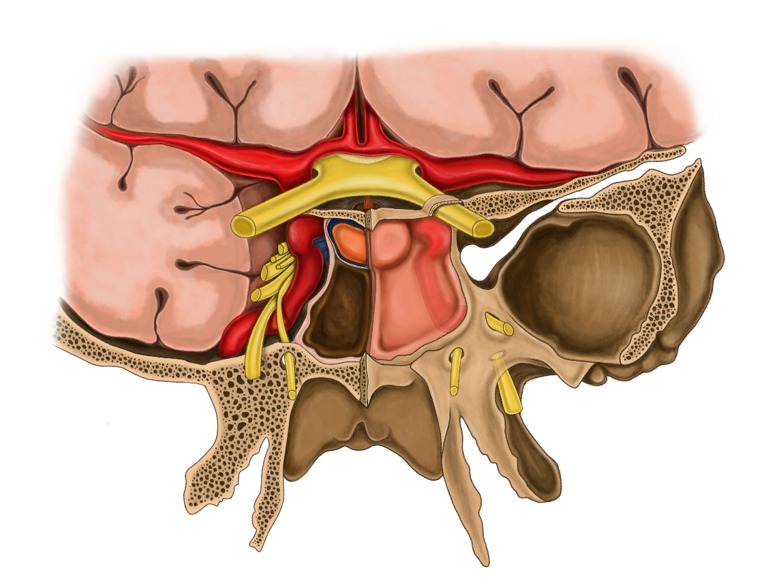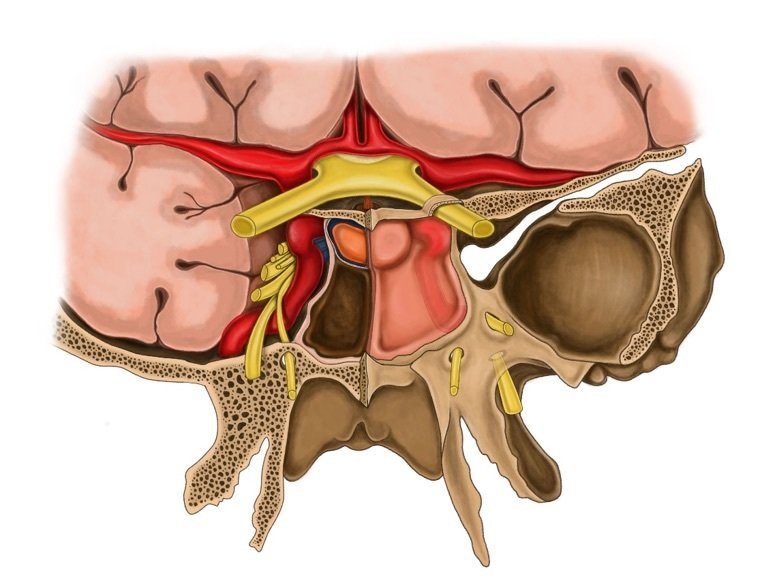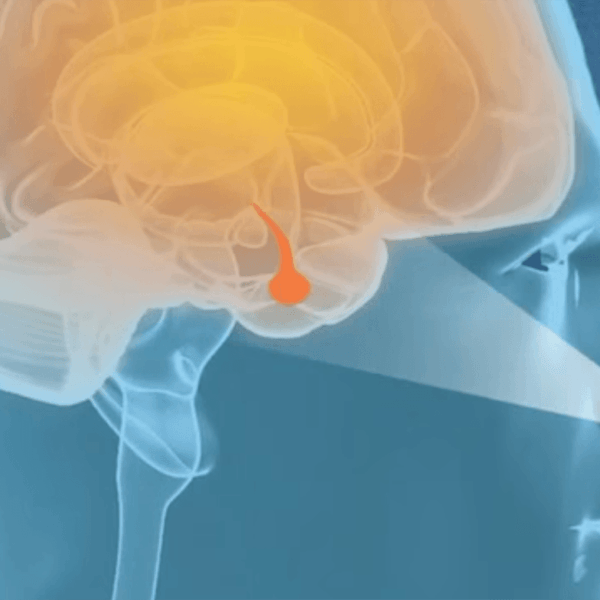
The Pituitary Gland: Anatomy & Function of the Master Gland
Why is the pituitary gland called the master gland?
The Pituitary Gland is at the anatomical and functional crossroads of the brain, mind and body. Weighing less than one gram and measuring a centimeter in width, the pituitary is often called the “master gland” since it regulates the secretion of the body’s hormones.
These substances when released by the pituitary into the bloodstream have a dramatic and broad range of effects on growth and development, sexuality and reproductive function, metabolism, the response to stress and overall quality of life.
Pituitary gland anatomy and function
This small, bean-shaped gland is located below the brain in the skull base, in an area called the sella turcica. The pituitary gland is regulated by a brain region called the hypothalamus which is connected to the pituitary gland by a thin delicate vascular connection called the pituitary stalk or infundibulum.
The pituitary is divided into a larger anterior region (adenohypophysis) and smaller posterior region (neurohypophysis). Directly above the pituitary are the optic nerves and the optic chiasm as they project to the eyes.
On each side of the pituitary is the cavernous sinus which is a venous channel through which runs the carotid arteries that carry blood to the brain, and important nerves that control eye movements and facial sensation.
Because of the proximity of the pituitary to these major intracranial nerves and blood vessels, and the vital hormonal control the pituitary provides, disorders of the pituitary can cause a wide spectrum of symptoms, both hormonal and neurological.

Hormonal Deficiency At A Glance*
HORMONAL DEFICIENCY
SYMPTOMS
TREATMENT
Growth Hormone (GH):
This is the principal hormone that, among many other functions, regulates body and brain development, bone maturation, metabolism and is essential for healthy muscles.
Children: Growth delay
Adults: Decreased muscle mass, increased body fat, elevated cholesterol, low bone density (osteoporosis), impaired psychological well-being,poor quality of life
Recombinant Human Growth Hormone- Given once daily as an injection under the skin
Luteinizing Hormone (Lh) And Follicle Stimulating Hormone (FSH):
These hormones control the production of sex hormones (estrogen and testosterone) as well as sperm and egg maturation and release.
Decreased libido, erectile dysfunction, irregular or absent menses, decreased body hair, decreased muscle strength, hot flashes, mood changes
Men: Testosterone- Given as either topical gel or patch or injections
Women: Estrogen + Progesterone-Given as either topical patch or pills
Adrenocorticotropic Hormone (ACTH):
This hormone triggers the adrenal glands (located above the kidneys) to release the hormone cortisol which in turn, regulates carbohydrate, fat, and protein metabolism and is essential in the stress response.
Poor appetite, nausea, weakness, vomiting, low blood sugar, low blood pressure, dizziness, body aches
Hydrocortisone or Prednisone-Given as daily pills
Thyroid Stimulating Hormone (TSH):
This hormone stimulates the thyroid gland to release thyroid hormones. Thyroid hormones control basal metabolic rate and play an important role in growth and maturation. Thyroid hormones affect almost every organ in the body.
Fatigue, weakness, cold intolerance, dry skin, constipation, heavy/painful menses, weight gain, memory loss, mood disturbance
Levothyroxine: Given as daily pills (some examples include Synthroid or Levoxyl or Levothroid or Armour Thyroid)
Prolactin (PRL):
This hormone stimulates secretion of breast milk.
Inability to lactate
No treatment available
Vasopressin – Also Called Anti-Diuretic Hormone (ADH):
This hormone promotes water reabsorption by the kidneys and is thus essential in water and electrolyte balance.
Increased thirst and frequent urination
DDAVP: Given either as daily pills or nasal spray
*In disease states, the pituitary may under- or over-produce hormones. Decreased pituitary hormone production is called hypopituitarism or pituitary failure. The symptoms and treatment of specific hormonal deficits and described below.

